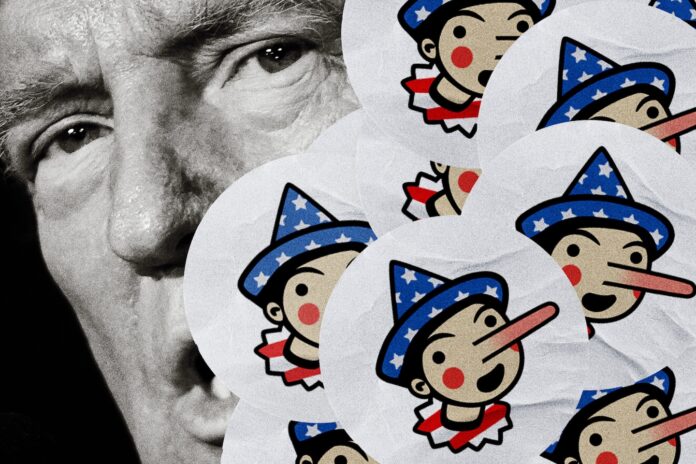Analyzing the Persistence of Donald Trump’s Falsehoods and the Importance of Presidential Honesty
Former President Donald Trump has a long history of spreading misinformation and lies, from exaggerating his crowd sizes to falsely claiming that the 2020 election was stolen. As he continues to push these falsehoods, it is important to examine the impact of his lies on the American public.
Here are some of the most notable lies that Donald Trump has told:
– Claiming that the 2020 election was stolen, despite numerous court rulings and investigations finding no evidence of widespread fraud.
– Exaggerating the size of his inauguration crowd, despite photographic evidence showing otherwise.
– Falsely claiming that Mexico would pay for a border wall, when in reality, American taxpayers footed the bill.
– Spreading misinformation about the COVID-19 pandemic, downplaying its severity and promoting unproven treatments.
These lies have far-reaching consequences, as they erode trust in the democratic process and sow division among the American people. When a president consistently spreads falsehoods, it undermines the foundation of democracy and threatens the integrity of our institutions.
According to a report by The Washington Post Fact Checker, Trump’s lies have a lasting impact on public perception. Despite fact-checking efforts and debunking of his claims, many of his supporters continue to believe his falsehoods. This raises concerns about the power of misinformation in shaping public opinion and influencing political outcomes.
In a democracy, the truth is essential for informed decision-making and holding leaders accountable. When a president prioritizes his own ego over the facts, it sets a dangerous precedent for future leaders and undermines the credibility of the office. Trump’s narcissistic lying poses a threat to democracy by eroding trust in institutions, fueling polarization, and undermining the rule of law.
Source: https://www.washingtonpost.com/donald-trump/?itid=lk_inline_manual_1
